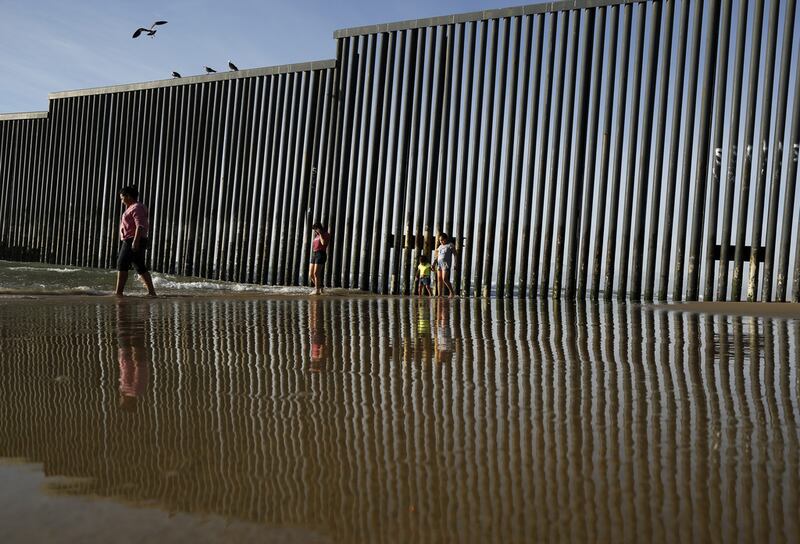Donald Trump’s fiery exchange with the Mexican government over the proposed erection of a wall across the Mexico-US border, and the source of funding for the wall, has ignited an intense debate among experts and non-experts regarding the best way to prevent illegal border crossings. This is a problem faced by most countries, including Kuwait, Oman and Saudi Arabia, which have long terrestrial borders with non-GCC states. What does economics tell us about the key considerations?
Humans have not developed the capability to tightly secure borders that are hundreds or thousands of kilometres long in an economically viable way. A heavy military deployment could lead to minimal border encroachments, but the cost would be astronomical. Thus, just like crime, one has to accept a certain amount of unauthorised border crossings as inevitable and watertight borders are, according to present technology, a pipe dream.
An added complication is that many stakeholders in the receiving country – and often the economy as a whole – benefit from illegal border crossings, because migrants provide cheap labour that frees citizens to pursue more lucrative careers, and because migrants also possess skills that are undersupplied in the local labour market. This means that even when central governments issue commands to step up border security, they may be opposed by stakeholders in the communities near the border.
In the case of the US, this opposition is sometimes covert, with business leaders encouraging the local authorities to implement the central government’s orders with limited zeal. In any country, citizens are much less likely to report irregular migrants who perform useful services at a low price, than ones who engage in overtly criminal behaviour.
There is also a conventional trade-off between border security and economic exchange. Mr Trump’s blanket temporary ban on citizens from a certain group of countries casts a cloud of uncertainty over future hiring of foreign nationals. In some areas, such as Silicon Valley, migrant workers are a critical component of the workforce, meaning that this uncertainty has substantial adverse economic consequences. Extra security also undermines future efforts at collaborating with foreign nationals in military endeavours. For example, Afghan citizens are less likely to work as translators for the US government as they will regard promises of green cards and work visas as not being credible.
Ultimately, the root cause of efforts to cross borders, legally or otherwise, is the disparity in economic and security environments. Unless such differences are reduced drastically, people will respond to higher security with more elaborate countermeasures, much of which put the lives of the migrants and others at risk.
Accordingly, a potentially superior long-term strategy for border security is contributing to the economic development of the sending country through mutually beneficial commercial exchange. Eastern Europeans are at present less likely to seek to migrate to western Europe than 15 years ago because economic integration with the EU has improved their local economies. The waves of Irish and Italian migrants that crossed the Atlantic during the 19th and 20th centuries in search of a better life have been replaced by educated and productive Irish and Italian citizens seeking their fortunes back in their native countries.
In the GCC, regional disparities are acute at present because of violent conflict. As the security situation begins to improve, a potentially fruitful strategy is to investment in countries such as Yemen, which has much potential if the economy can be organised effectively.
This is why Mr Trump’s strategy of building a wall and diminishing commercial exchange with Mexico is likely to backfire, as it will make Mexicans more desperate to cross the border.
Omar Al Ubaydli is the programme director for international and geopolitical studies at the Bahrain Centre for Strategic, International and Energy Studies, and an affiliated associate professor of economics at George Mason University in the US. He welcomes economics questions from readers via email (omar@omar.ec) or tweet (@omareconomics).
business@thenational.ae
Follow The National's Business section on Twitter






